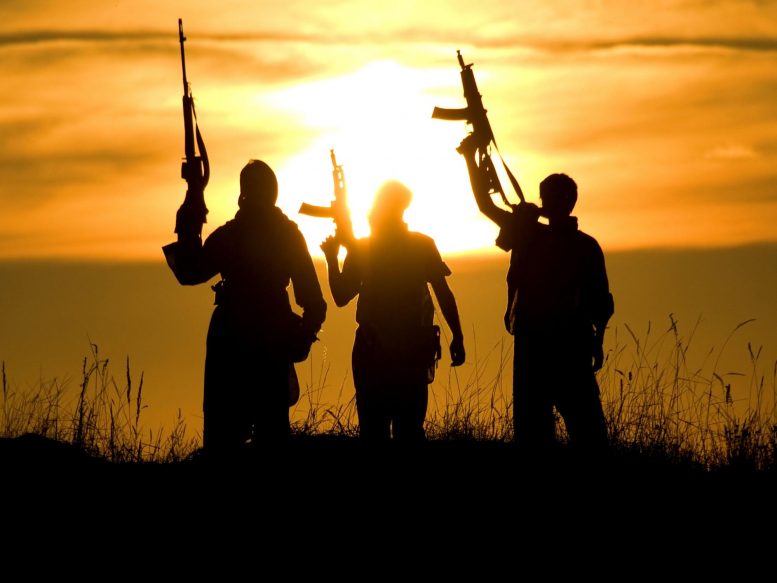
The Afghan government’s sudden collapse resembles the rapid fall of the South Vietnamese government in Saigon.
Northwestern experts weigh in on the crisis in Afghanistan as events continue to unfold.
Northwestern faculty in history, political science, international relations and journalism are providing analysis and commentary on the recent events in Afghanistan.
Fighting only to arrive at the same end
Michael Allen is an associate professor of history in the Weinberg College of Arts and Sciences. His research interests are U.S. political and diplomatic history. He is the author of “Until the Last Man Comes Home: POWs, MIAs, and the Unending Vietnam War.” His current work-in-progress, “New Politics: The Imperial Presidency, The Pragmatic Left, and the Problem of Democratic Power, 1933-1981,” treats evolving left-liberal relations to presidential power in the postwar era.
“The sudden collapse of the Afghan government bears a striking resemblance to Saigon and the precipitous collapse of the South Vietnamese government in April 1975. Both teach the same lesson: American troops cannot outlast determined indigenous forces with nowhere else to go. Americans tried and failed to do so in Vietnam, where they battled communist insurgents for two decades before conceding this difficult truth. They have tried and failed to do so again in Afghanistan, fighting just as long only to arrive at the same end.”
Once the dust settles
Rajeev Kinra is a cultural historian of early modern South Asian, Middle Eastern, and North African history with an emphasis on religious history. He is director of Northwestern’s Asian Studies Program and co-director of Northwestern’s Global Humanities Initiative. His teaching interests include the undergraduate course, “Afghanistan: From Alexander the Great to the Anglo-Afghan Wars.”
“Hopefully it won’t be as bad as some of us fear. But one can also rest assured that once the dust settles in Kabul, the other regional powers are not going to just sit idly by. Afghanistan shares borders with Iran, Pakistan, China, Uzbekistan, Tajikistan, and Turkmenistan, with India and Russia lurking just beyond.
“They’re going to try to leverage their relationship(s) with Kabul vis-a-vis their regional rivals, both overtly and covertly. Because there are also huge economic stakes. Afghanistan may be relatively poor in modern amenities, but it is quite rich in natural resources, particularly minerals and precious metals.”
Repeated promises
Ian Hurd is professor of political science and the director of the Weinberg College Center for International and Area Studies. His most recent work is “How to Do Things with International Law,” an examination of the political uses of international law. His earlier book on the power of legitimacy and international authority in the United Nations, “After Anarchy: Legitimacy and Power in the UN Security Council,” won the Chadwick Alger Prize from the International Studies Association and the Myres McDougal Prize from the Policy Sciences Society.
“The way the Taliban has taken over so quickly this week reveals how shallow the U.S. effort really was: A Potemkin village in Kabul funded by U.S. taxpayers and kept standing by never-ending U.S. military activity. Since 2002, the U.S. has been propping up a puppet government in Kabul for week after week, decade after decade, president after president. Repeated promises by the U.S. military that victory was just around the corner were fantasy. Biden deserves a lot of credit for taking the U.S. out of the picture.
“Many people are rightly horrified at the prospect that a Taliban-led government will treat people very poorly. This is a very real concern, but it does not justify continued U.S. military occupation. The United Nations is the global force with the authority to hold the new government to account for how it treats people. The UN’s recent record at this is not encouraging, as evidenced by conditions in Syria. But through sanctions, inducement and collective pressure, the UN is a better institution than the U.S. military to hold governments responsible for their behavior.”
The jig is up
Elizabeth Shakman Hurd is a professor of political science and the Crown Chair in Middle East Studies. She teaches and writes on religion and politics, the politics of human rights and the right to religious freedom, the legal governance of religious diversity, U.S. foreign relations and the international politics of the Middle East.
“The jig is up in Afghanistan. How long it will take the U.S. to come to terms with tragic price of empire remains to be seen, but at the moment we should listen closely to the Afghan people and make good on our promises to all of those who helped us during the war and occupation.”
What will happen to this priceless heritage?
Brent E. Huffman is an associate professor of journalism at Medill as well as a documentary filmmaker. Recently, he has been examining China’s international presence in Africa, Afghanistan and Pakistan.
He went to Afghanistan and filmed the frantic effort to save antiquities at the ancient Buddhist site Mes Aynak, which now has fallen to the Taliban.
Located along the Silk Road that in Marco Polo’s days linked China with the Roman Empire, it is home to hundreds of Buddha statues, devotional temples and an approximately 100-acre monastery complex 25 miles southeast of Kabul. The vast majority of relics and structures are underground; many are too large and fragile to be moved.
“Mes Aynak served as an al-Qaeda training camp, and miraculously survived three decades of war and looting,” Huffman said in 2012.
In a series of distressed tweets, Huffman said he is “angry and heartbroken at the nightmarish situation in Afghanistan.”
“At #MesAynak alone there are over 5,000 years of history, much still buried in the ground. What will happen to this priceless heritage now? What happens when the history of #Afghanistan is erased like this? What happens to the #Afghan people?” he added in his twitter thread.
In an August 19 BBC interview, Huffman talked about the fate of Afghanistan’s cultural sites under the Taliban and the imminent challenges facing the ancient Buddhist city of Mes Aynak.









Be the first to comment on "Northwestern Experts: Afghanistan Debacle “A Striking Resemblance to Saigon”"